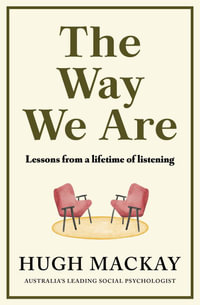With a focus on Honduras, James J. Phillips explores the deeper causes of the massive emigration of Central Americans to the United States. Going beyond the frequently given reasons for migration, Phillips provides a detailed account of how the frenzied extraction of natural resources has created massive community displacement, dependency, poverty, and vulnerability, while encouraging corruption, violence, gang recruitment, drug trafficking, militarization of Honduran society, and systematic repression of popular protest and resistance.
Highlighting how this situation is tied to the colonial (or imperial) extractive relationship of Honduras to the United States, Phillips contends that the usual policy of development aid and investment to stem migration will only worsen the conditions that create migration. With this book, Phillips depicts how the Central American immigration "crisis" shapes life in the United States and Honduras, while making clear that the effects are not what populist politics imagine.
Industry Reviews
In order to understand the immigration crisis at the southern border of the United States, it is imperative to understand why someone would want to leave their homeland. This important new book explores the roots of that crisis, and situates it in extractive economies and militarized societies. Anthropologist Phillips is not content to leave this story on the level of what is wrong and so includes reflections on how to solve the extreme human rights abuses that drive immigration from Honduras. This book is critical for understanding how we can move forward to create a more just and peaceful world. -- Marc Becker, Truman State University Honduras is a major originating country for current immigrants. Everyone who wants to understand the real causes of this migration should read this book. While gang violence is well-known, global mining and logging are less well-known, yet crucial, as is the US-supported Honduran government militarization used to implement them. -- Josiah Heyman, University of Texas at El Paso This exactly the book we need to understand the realities behind the news we read about Honduras. Vividly connects past to present and shows how different forms of extractive development have contributed to the poverty, corruption and violence that are spurring today's migration. The author has a deep knowledge of Honduras and its history and situates the country clearly in its global context. -- Aviva Chomsky, Salem State University Simply the best book I have read in many, many a year. Beautifully written, this deeply immersive, fully-substantiated account of the shaping and making of the failed Honduran state and relative role of the United States absolutely conveys the remarkable resilience of the Honduran people. James J. Phillips' Extracting Honduras educates, inspires, and demands to be read again and again. -- Barbara Rose Johnston, Michigan State University Extracting Resources and Exporting Lives-With a military coup d'etat in 2009 that was supported and cemented into place by the United States, Honduras was 'opened for business.' Extractive industries invaded territories and communities throughout Honduras to plunder natural resources, a move that was facilitated by a regime that is servile to the United States and its extractivist policies. This colonial relationship has produced a massive dispossession and exportation of Hondurans, who are forced to flee. Those who survive the journey north become shock absorbers for the economic deficit of Honduras; their remittances are a principal source of revenue that represents nearly 20% of Honduras' Gross Domestic Product. For the regime that expels and 'exports' them, they become contributors. There is a total loss of fundamental human rights for them, their families, and their communities. We acknowledge and extend our deep gratitude to James Phillips for showing the other side of the coin in this neocolonial business in which our people are just one more commodity. -- Bertha Oliva, Committee of Families of the Detained/Disappeared in Honduras The relationship between the policy of the United States government and the phenomena of migration is intrinsic. With more intervention from the north, there is more dependency and less sovereignty for countries like Honduras. This generates a lack of opportunities, marginalization, and exclusion that eventually leads to migratory flows and violence. The challenge is to transform the interventionist presence into a presence of solidarity and respect for the self-determination of the people. This is the task that is needed in order to create new international relations and drastically reduce the root causes that produce forced migration. -- Ismael Moreno, Radio Progreso, and the Reflexion, Investigation, and Communication Team This important book studies how various political and economic issues interact negatively with one another to the detriment of both Honduras and its bilateral relationship with the United States. Through solid analysis, Phillips convincingly shows how compounding problems in Honduras apply to other countries in Central America and elsewhere. This book skillfully dissects the intricacies of Honduras's political economy. Recommended. Advanced undergraduates through faculty. * Choice Reviews *
























